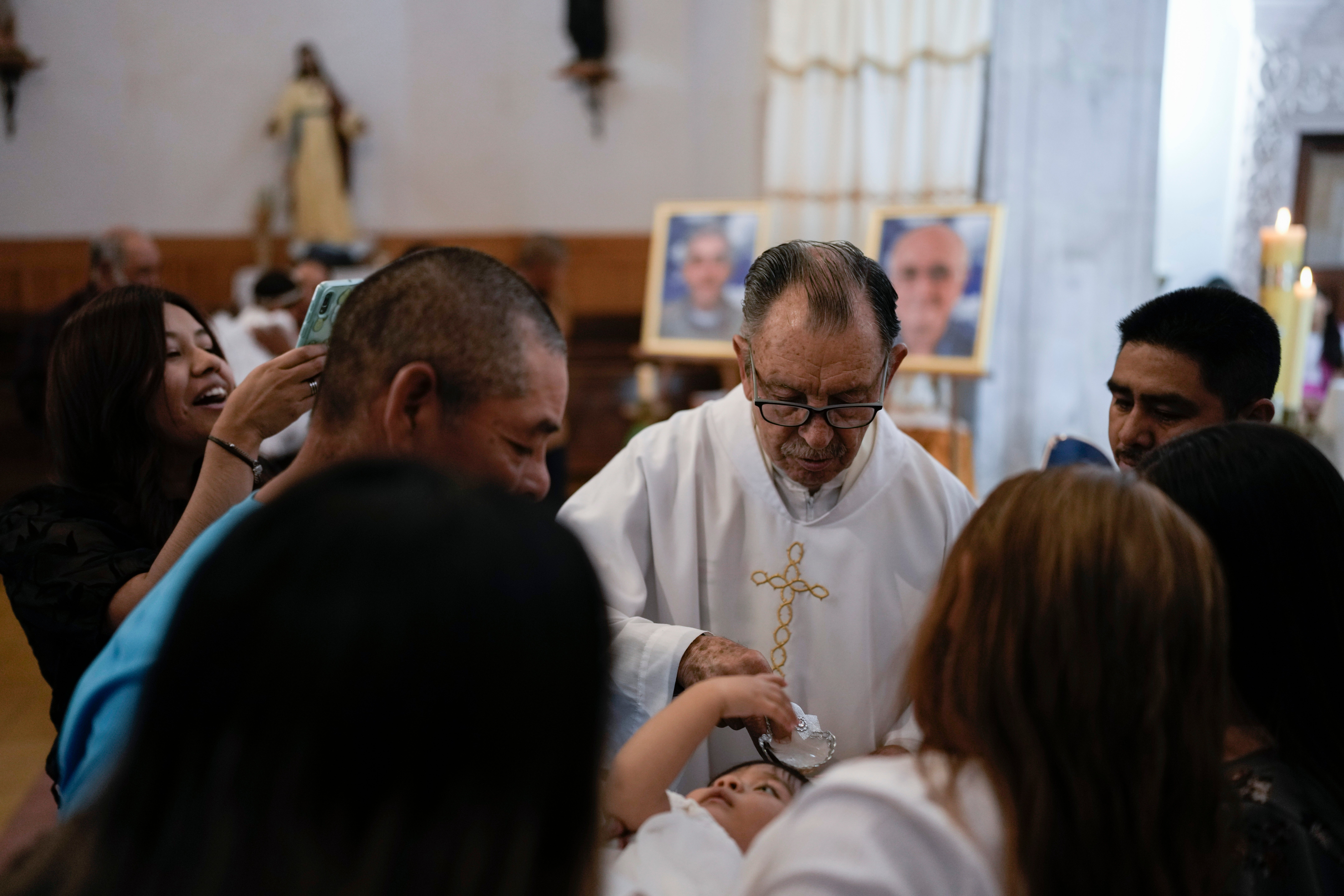Peace must be a priority, say Catholic leaders on anniversary of priests' violent deaths in Mexico
Two years have passed since a leader of one of Mexico’s organized crime gangs stormed into a Catholic church in the remote Tarahumara mountains and fatally shot two Jesuit priests

Two years have passed since a leader of one of Mexico’s organized crime gangs stormed into a Catholic church in the remote Tarahumara mountains and fatally shot two Jesuit priests.
Among many faith leaders nationwide, the pain unleashed on June 20, 2022 — when the Revs. Javier Campos Morales, 79, and Joaquín César Mora Salazar, 80, were murdered by a local gang leader — has not faded. Nor their quest for peace.
“The murders of Fathers Javier and Joaquín has allowed us to redefine the pain that lives in the hearts of many corners of the country,” the Catholic bishops conference of Mexico said in a news release Thursday. “To build a shared movement that has peace as its horizon and the victims of violence as its starting point.”
President Andrés Manuel López Obrador, since he took office in 2018, has avoided direct confrontation with cartels and violent gangs controlling and terrorizing local communities. His “hugs, not bullets” policy has drawn extensive criticism from faith leaders, human rights organizations and journalists who have echoed victims’ fears and anger.
Organized crime has long controlled swaths of territory in states such as Guerrero, Guanajuato and Michoacan. Many people have been displaced from rural villages in Chiapas by warring cartels.
Some two dozen candidates were killed ahead of June 2 elections, when Mexicans elected Claudia Sheinbaum as their first female president.
Both Sheinbaum and López Obrador have rejected any criticism of the government’s security strategies, claiming that homicide levels were reduced during the last administration. In contrast, church leaders have repeatedly said that Mexico suffers from a “deep crisis of violence and social decomposition.”
In remembrance of the 2022 murders, the bishops conference, Jesuits of Mexico and some other national religious organizations announced Thursday a third stage of the “National Peace Dialogue.” They demanded concrete actions to address nationwide violence.
For the past two years, the initiative has brought together civil society, academics, violence victims and businesspeople who search for solutions to achieve justice, security and peace. More than 60.000 testimonies have been gathered.
The relationship between López Obrador and the Catholic Church has been tense ever since the murder of the Jesuits priests. Bishop Ramón Castro, secretary general of the bishops conference, said ahead of June elections that he wished for a deeper dialogue between the government and the church.
Lopez Obrador has said that religious leaders are “cynical” and “hypocrites” for criticizing him but not his predecessors.
“It’s a shame that the President ignores history,” the Rev. Javier Ávila, a Jesuit who worked close to the murdered priests in the Sierra Tarahumara, said in a recent interview. “So I need to remind him that we, the Jesuits, were expelled from America for having shouted in favor of the Indigenous people."
“One cannot be indifferent when one has hit rock bottom, when blood has splashed on you, when you have shared tears.”
In its news release Thursday, the bishops' conference announced the start of the “Local Peace Projects,” which will include various actions in schools, neighborhoods, companies and family environments.
The peace proposal from the Catholic Church addresses seven topics: reconstruction of the social fabric, security, justice, prisons, youth, governance and human rights.
____
Associated Press religion coverage receives support through the AP’s collaboration with The Conversation US, with funding from Lilly Endowment Inc. The AP is solely responsible for this content.
Bookmark popover
Removed from bookmarks